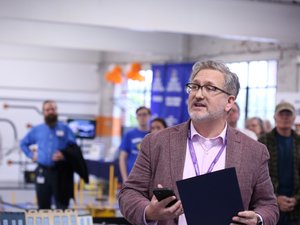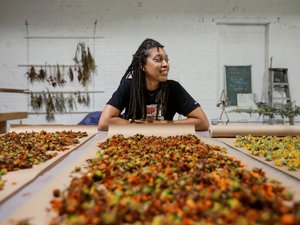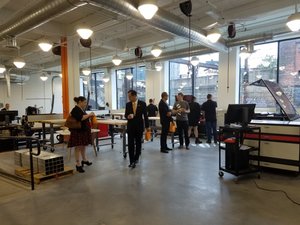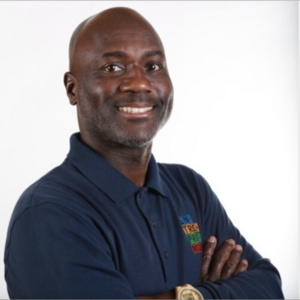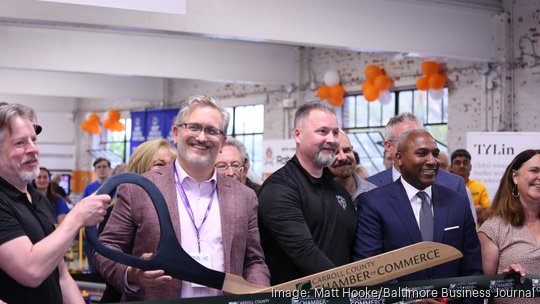
The Maryland Technology Development Corp. gave out its first batch of funding on Thursday to develop 20 makerspaces across the state and expand access to manufacturing tools.
The state government's technology investment arm announced Thursday that it awarded grants to institutions like the Mid-Atlantic Gigabit Innovation Collaboratory (MAGIC), Morgan State University and the Carroll County Library to finance their own makerspaces.
Makerspaces offer a place for people to experiment with a variety of tools such as 3D printers that can help them learn about the principles of engineering or start a small business. The Maryland General Assembly directed the governor this year to allocating at least $1 million to TEDCO's makerspace initiative from 2024 and 2028 through Senate Bill 453.
MAGIC will use the grant funding to add 3-D printing and manufacturing equipment to its recently opened autonomous vehicle center in downtown Westminster. The additional state funding will allow the science center to stay open at more regular hours to allow community members outside of local students to take advantage of the facility.
The Carroll County Library, a frequent partner of MAGIC, is looking to create a makerspace inside its facilities and make a dense area for innovation that hasn't existed before in the rural county.
“Other makerspaces received funding that may not be what people traditionally think of as makerspaces. There was a horticultural makerspace and a fabric sewing maker space,” MAGIC CEO Graham Dodge said. “It's an interesting, diverse list of types of maker activities throughout the state. And I'm looking forward to kind of reaching out and seeing how we can partner with many of them.”
Coppin State Professor Ron Williams believes a key benefit of makerspaces is the opportunity to harken back to earlier style of industrial production with stronger regional connections that can help reduce the reliance on international trade. Baltimore City makerspace Open Works manufactured 28,000 face shields during the pandemic in just 58 days, filling a crucial need when international supply chains were disrupted by the pandemic.
"When the supply chain broke down, we realized that that global supply chain does not necessarily serve us all the time," Williams said. "So we need to change the job creation, and also this resilience of the supply chain, we need local production."
Baltimore City State Senator Cory McCray, who co-sponsored the bill funding the makerspace program with Garrett County state senator Dave Edwards, was inspired by the progress of Open Works, a makerspace near Greenmount Cemetery. The north Baltimore facility is considered a model of business incubation and education with a direct economic impact of 108 jobs and an annual fiscal impact of $9.9 million a year from product sales, salaries, and new entrepreneurs, according to a Coppin State University study. Makerspaces create a cycle of economic growth as they are both educational institutions that teach classes for both young people and adults and hubs entrepreneurs to access hard to find tools.
"Somebody comes to Open Works and they take a class and then they turn that class into a small business," Williams, the leader of the Coppin State study, said. "They start to get supplies from Baltimore City, then they start to produce income and pay taxes on that income and say start teaching classes and began to educate others."
Open Works will serve as a technical advisor to the makerspaces funded by TEDCO, so grantees can benefit from its experience. The key to the success of Open Works is it's ability to foster a dedicated community of craftspeople who work together on projects, Williams said. The diversity of Open Works compared to many of it's peers across the country is an example of the institutions effectiveness at community building through incentives like entrepreneurship classes targeted toward woman or partnerships with HBCU's like Coppin. Makerspaces across the country struggle with diversity with 73% of staff or customers being White, while OpenSource has managed to foster diversity with participant group that is 31% African-American, according to the Coppin State study.
"People have been making things since the beginning of time," Williams said. "But but but what's unique about it is that you're creating a space where you can also build community."
